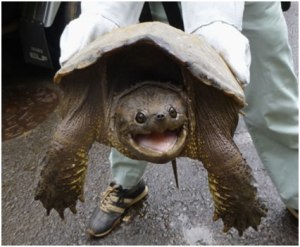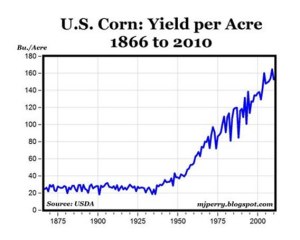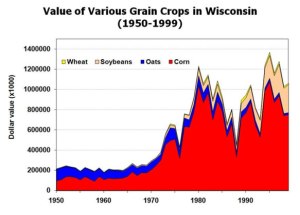Originally published on March 22, 2016
See the French version
See the German version
This is the third and final instalment of a three-part Pesticide Action Week series on why glyphosate must not be banned. I provided 10 reasons why glyphosate is the herbicide of the century in Part 1 and questioned IARC’s unprofessional, non-transparent behaviour and conflicts of interest in pushing through bad science in their glyphosate monograph. In this blog I will look at how herbicides have changed not only farming but all of western society and consider a very likely consequence should the glyphosate ban push through.
Do you ever wonder why elementary schools close during July and August? Historically, children were needed to work in the farms then, in particular to pull weeds. Before herbicides were developed, this back-breaking job of hand weeding crops landed on the littlest limbs. Growing up on a mixed fruit and vegetable farm in Southern Ontario, I was one of those child labourers. In the 1960-70s, the Zaruks ran a normal family farm, like most farms still today (however much that image has been tainted by the organic lobby).
My childhood friends used to call me “zebra”, not just because of my last name, but because after the summer I had a stripe down my sides. My back was tanned dark brown and my chest pure white because I always leant forward shirtless with my back to the sun while weeding and hoeing. I did not suffer the back pains so much (although I have a bad back now), but I remember the heat and the dirt in my pores. 40°C in a tomato or onion field did not give much opportunity for shade. I was young so I managed better than most.
Weeding was an endless job – by the time I had finished one two-acre patch, the weeds were getting out of control in another. At the beginning of the summer, I would be lucky if my father could go down the middle of the rows with a rototiller, but once the melons began to spread out, I was on my own. I had to get them by the roots so I got good at holding the base of the weed while loosening the soil with a short-handled hoe. As a twelve-year-old, I remember I was always taping blisters on my right hand to keep infections down.

To this day, I am terrified of turtles. Snapping turtles would come up from our creek to lay eggs in our orchard but, working with my head down, I often would not notice until I was practically on top of them. One time my brother was trying to move a snapper with a hoe and it broke the shaft completely. Imagine what it could do to a twelve-year-old’s arm reaching for a weed.
Being a child labourer, for me, was not a lost youth and I have no bitterness – I had no idea what a normal childhood was and it shaped me to who I am today. I grew up outside and we did have motorbikes to make for another sort of play-time. I also learnt how to back a tractor-trailer into a narrow space at the age of 13. But I would not want my children to have to do such a job for the entire summer, let alone for the first 21 years of their lives. Still, I know what it feels like to enter the field at sunrise and return with a rewarding exhaustion at sunset – the smell of the air, the feel of the earth. This is something most anti-farming activists in Brussels know nothing about (but seem to have answers for everything).
Herbicides changed agriculture – socially, economically, morally
One thing that a farmer seeks is to work less hard and be more comfortable. There is nothing about weeding that is easy or comfortable. It is essential to remove the invasive nutrient predators to protect and enhance the crops, but it is costly, time consuming and endless. In the 1960s, the introduction of the first herbicides made farming easier, cheaper and more productive. Farmers could keep weeds down for pennies, increase yields and allow their children to enjoy a summer holiday. See some tables on how yields went up during this revolutionary period in US farming.
The same yield increases occurred across a wide range of crops – take Wisconsin as an example.The spike in US corn yield mirrors the introduction of herbicides, making farming easier and more child friendly
Add to that the ability to produce so much more with far fewer farmers and I feel the role of herbicides on improving the quality of life, economic vibrancy and food security has been grossly underestimated.
By the time glyphosate was developed, with its low toxicity and effective action, children had forgotten why summer holidays were set in July and August. Herbicides were so effective that the State of California, in 1972, had banned the use of the short-handled hoe for the cruel pain and suffering it had caused farm labourers. With the ever-improving technology and the introduction of glyphosate-resistant seed varieties, California regulators in 2004 went so far as to ban the practice of hand weeding altogether because of the harsh unnecessary occupational health consequences. This legislation had one small caveat though. The organic industry lobbied to be exempted from the legislation since they don’t use herbicides and won the right to continue using children to pull the weeds out on organic farms. Another great victory for the formidable, but rather unethical, organic farming lobby.
The organic industry lobbied to be exempted from the California hand-weeding ban since they don’t use herbicides. They won the right to continue using children to pull the weeds out on organic farms. Another great victory for the formidable, but rather unethical, organic farming lobby.
So the organic lobby is now making progress in their campaign to ban glyphosate, and well, all herbicides. This would not only be an environmental disaster, but also a social disaster. Leonard Gianessi calculated that, in order to maintain US crop yields today without herbicides, Americans will need to recruit 55 million teenagers to weed the farms. From my own experience, I can believe this (I also recommend that you watch Gianessi’s informative talks on the social-economic history of herbicides and agriculture in the last five decades). The problem is that there aren’t 55 million US teenagers so the farmers will have to go younger. This is one more situation where I find myself watching the success of Stupid in banning a beneficial pesticide with extremely low toxicity without any understanding what the consequences will be. I’m literally gobsmacked.
Pesticide Action Week 2016 – The Hypocrite Hypothesis
So we are in the middle of Pesticide Action Week, where activists in Brussels, who no doubt actually sincerely believe they are good people, are gleefully putting the final nails into the coffin of the herbicide of the century … without any idea of the consequences. I would like to ask some of the sponsors of this “bash thy neighbour” pro-organic lobbying campaign a question, or should I say, an “integrity challenge”. So to the directors from HEAL, PAN Europe and Greenpeace EU Unit, who are leading the anti-pesticide campaigns in Brussels, here is my question / challenge:
Would you be willing to sign your 12-year-olds up for a summer of hand weeding on farms in southern Europe?
My parents made that decision because they did not have a choice. You have a choice as the leaders of the NGOs behind this idiotic ban glyphosate campaign. But don’t worry – it is OK if you show integrity. I hand weeded for about a decade so I’m sure your children too will appreciate the experience and grow from it. I’ll even show you how to tape your 12-year-olds’ blisters up.
You have three possible answers to my question:
- Walk the talk and sign your kids up for an unusual summer holiday;
- abandon your horrid little anti-farming campaigns (and apologise to farmers); or
- admit that you are hypocrites.
You can reply to this blog and I will gladly publish it in full.
Something tells me, like those vicious snapping turtles, you will stay still and invisible until you find the right moment to strike. Now I do know why I despise you!
Risk-Monger update 12.04.2016 – the heads of PAN, HEAL and Greenpeace EU Unit did not reply or offer their children up for hard labour. I suppose they have been too busy trying to ban herbicides so farmers would have to send their children into the fields! Snap!
I had hoped this would be an informative, balanced examination of glyphosphate. Unfortunately I instead found an article composed mainly of anecdotal evidence. The only data in this article demonstrates the effectiveness of glyphosphate, which, to me, is a moot point.
LikeLike
Thanks Kirsten – this is part of a 3-part series on why the attack on glyphosate is misguided. The data provided in the links from Leonard Gianessi’s talks are the best you can find on how herbicides changed farming and simply put allowed a generation to get off of the farm and contribute to an economic expansion not seen before in history.
That I shared stories of my childhood may not be scientific, but too often people forget what hard work farming is (and how family farmers rely on their children). Activists who have never got their hands dirty think we can just ban herbicides and things will be fine … or as they claim … better. Perhaps mine is just one story, but more people need to tell such stories to remind people that the alternatives are not better, but indeed far worse.
LikeLike
Work is a skill that has to be taught to each generation. I too walked fields & other farm tasks. I remember my 14 yr old son having a friend out for the weekend and I was explaining to my son what he needed to do before he went fishing. The friend said,”He doesn’t have to do any of that.” To which my son said,”Shh the sooner we get this done the sooner we can go fishing.” 30 years latter the friend
never did learn to work
LikeLike
Best values for life are learnt growing up on a farm!
LikeLike